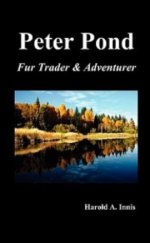Gosh, did everybody stop reading after Christmas????
I learned about this book from a reference in Garrett Conover's
Beyond the Paddle. I wrote a review for our canoe club newsletter.
ElliottMerrick, True North,
NewYork: C. Scribner's Sons (1933)
Reprinted by University of Nebraska Press (1989)
read online with a free account from archive.org:
https://archive.org/details/truenorth0000merr/mode/2up
After graduating from college, Elliott Merrick joined the legion of “sad young men” embarking on careers in business. He soon found the pursuit of money meaningless, and the city environment oppressive.
Seeking a new life, Elliott took a job as a schoolteacher at a mission outpost in Labrador. There he met and married Kay, a nurse at the facility.
Elliott and Kay ventured out with a party of fur trappers for a fall season in the backcountry. They made their way up the Grand River via pole,paddle, and portage. The most arduous carry on the route, modestly named “The Big Hill,” rose 700 feet in a quarter mile. Beyond this point, values changed: “A pound of tea is worth more than a diamond ring and ten pounds of flour is worth more than twenty pounds of gold.”
Life in the bush was fraught with hazards. Far from any hospital, both Elliott and Kay sustained axe wounds while cutting firewood. Elliott accidentally shot himself in the leg with a .22 pistol. Loss of a mitten or an axe could have disastrous consequences, and a fall into freezing slush could lead to fatal entrapment.
Throughout the book, Elliott's appreciation of the skills, stoicism, and community spirit of the trappers is evident. He has particular admiration for the families with children who live in isolated cabins in remote corners of the bush.
True North is only partly about canoeing. After all, through most of the book the rivers and lakes are frozen, and transportation depends on snowshoes. But
True North is not just a first rate adventure tale. It is a snapshot of traditional life in the Far North before the invasion of snowmobiles and airplanes. More than that, the book tells the story of one man's search for closeness to nature, an authentic community, and a meaningful life.


